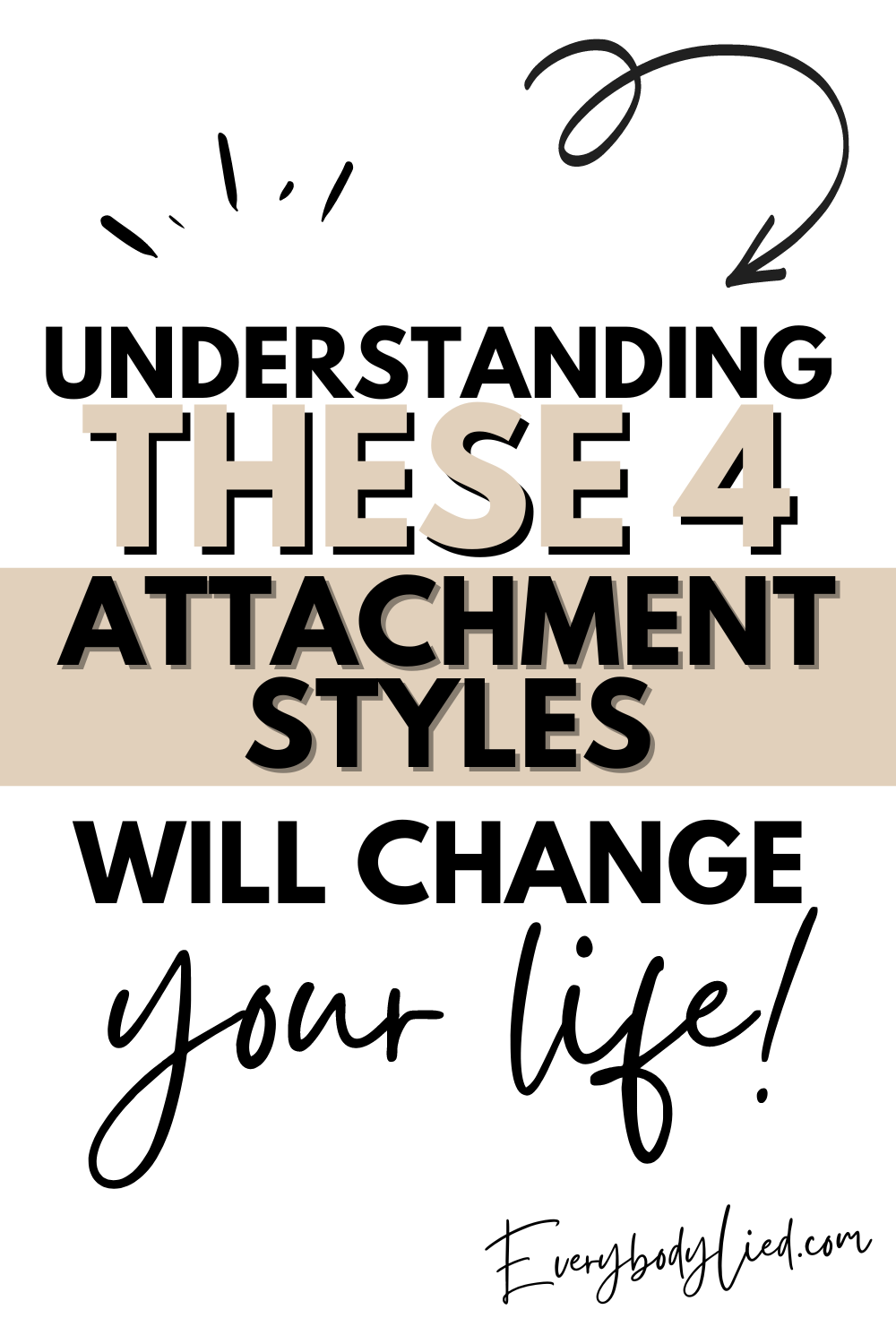Your attachment style is showing up and showing out in your life one way or another, it’s time for you to understand how yours is impacting your personal & professional relationships.
In this blog post, I’m using info I gathered online to explain the different attachment styles and how they can affect your relationships. I will also provide some tips on how to develop a secure attachment style.
And, in traditional fashion, I’m letting you all up in my business on the podcast! Find out how my attachment style showed up and slapped me in the face HERE.

Ok, now here’s what the experts say:
Attachment theory is a psychological theory that explains how people form and maintain relationships, particularly those between a child and their caregiver. According to attachment theory, children develop internal working models of attachment based on the quality of their early relationships with caregivers. These internal working models guide their later relationships with others, shaping how they approach intimacy, trust, and emotional regulation.
There are four main types of attachment styles according to attachment theory: secure attachment, anxious attachment, avoidant attachment, and disorganized attachment which is also called fearful attachment. Let’s take a closer look at each of these attachment styles.
Secure Attachment Style
Secure attachment is the most optimal type of attachment and is characterized by a child who feels comfortable exploring their environment knowing that their caregiver is available and responsive when they need them. The caregiver is consistent, responsive, and supportive, allowing the child to develop a sense of security and trust. As a result, children with secure attachment tend to be more resilient and adaptable to change, have higher self-esteem, and form healthier relationships later in life.
Common Signs of Secure Attachment in Adulthood:
- You feel at ease relying on others for support.
- You have confidence that others will offer their assistance when you need it.
- You rarely fret about the possibility of abandonment.
- Establishing close connections with others comes naturally to you.
- You don’t frequently concern yourself with the idea of someone becoming emotionally close to you.
- You are at ease with the idea of others relying on you for support.
In short, secure attachment in relationships is marked by trust, effective communication, emotional support, flexibility, and healthy boundaries, fostering a sense of safety and resilience in partnerships.
Anxious Attachment Style
Anxious attachment is marked by a child who is clingy and anxious, constantly seeking reassurance from their caregiver but not feeling secure even when their needs are met. As adults, people with anxious attachment tend to be preoccupied with their relationships, worrying about their partner’s feelings and intentions. They may be overly sensitive to rejection, criticism, or perceived slights, and may struggle with self-doubt and low self-esteem.
Common Signs of Anxious Attachment in Adulthood:
- You worry that your partner doesn’t love you or will leave you.
- You crave intimacy and closeness but fear rejection.
- You tend to be overly sensitive to criticism or perceived slights.
- You may be clingy or demanding in your relationships.
- You may struggle with self-doubt and low self-esteem.
If you have an anxious attachment style, it’s important to work on building your self-esteem and developing a sense of self-worth. You can also benefit from learning healthy communication skills, setting boundaries, and practicing self-care.
Avoidant Attachment Style
Avoidant attachment is marked by a child who is independent and self-sufficient, avoiding closeness and intimacy with their caregiver. As adults, people with avoidant attachment tend to be emotionally distant and may struggle with commitment. They may avoid emotional intimacy and may be uncomfortable with physical touch or affection.
Common Signs of Avoidant Attachment in Adulthood:
- You prefer to be alone or independent rather than relying on others.
- You may feel uncomfortable with physical touch or affection.
- You may struggle with commitment in relationships.
- You may be emotionally distant or detached.
- You may avoid emotional intimacy.
If you have an avoidant attachment style, it’s important to work on developing your emotional intelligence and learning to express your feelings in a healthy way. You can also benefit from practicing mindfulness and learning to be more present in your relationships.
Disorganized Attachment Style
Disorganized attachment is marked by a child who experiences both anxiety and avoidance in their relationship with their caregiver. As adults, people with disorganized attachment may struggle with emotional regulation and may have difficulty forming healthy relationships. They may experience intense mood swings, have difficulty trusting others, and may struggle with self-esteem.
Common Signs of Disorganized Attachment in Adulthood:
- You struggle with emotional regulation and may experience intense mood swings.
- You may have difficulty trusting others.
- You may struggle with self-esteem.
- You may have difficulty forming healthy relationships.
If you have a disorganized attachment style, it’s important to work with a mental health professional to develop healthy coping strategies and learn to regulate your emotions. You can also benefit from practicing self-care and building a support network of trusted friends and family members.
Attachment styles are an important aspect of our emotional development and can have a significant impact on our relationships. By understanding your attachment style and working to develop a secure attachment style, you can build healthier, more fulfilling relationships with others. Remember, it’s never too late to work on developing a secure attachment style and building stronger,

1 Comment
This is good. Would be good topic for a girls night or couples night.